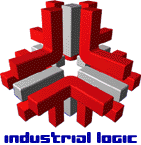|
Industrial Logic
|
The Analysis Patterns Group
Next Meeting: See Note Below
Location: Space Untitled
Time: 7:00 - 9:00 PM
Questions? email Joshua
When Will The Next Cycle Begin?
The AP Group was formed to study analysis patterns from Martin Fowler's landmark book,
Analysis Patterns: Reusable Object Models.
There have been 2 DPSG groups which have completed the cycle of study through Martin's book. We await the next group of people who would like to conduct a thorough, multi-week study of Analysis Patterns. Interested parties may join the DPSG mailing list to inquire about interest in this group. With sufficient numbers, the group will be re-activated and will follow an agenda not unlike the one posted on this page. Further Details... The AP group is not only about analysis patterns, it is also about the process of transitioning from being a developer to being an architect. This means understanding object models sufficiently, to be able to choose and re-use them in the real world. Groups also work to convert Fowler's models to UML (he actually requested that this be done!). By reinterpreting his models via the "standard" notation, some of the concepts he intended to convey become clearer. Group may provide Martin with continual feedback via the DPSG mailing list, and don't be surprised if Martin shows up to a meeting. Like all groups within the DPSG, this groups is based around quality dialogues between people. Everyone's input is invited. |

|